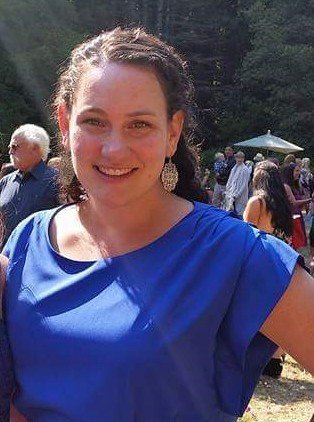Employee Profile: Rosemary Bartholomew
If you ask Rosemary Bartholomew about her work to improve Federal health care programs at the Department of Health and Human Services Office of Inspector General (HHS-OIG), you’ll make her day. As a Subject Matter Expert for Health Care Quality, she is proud of OIG’s work—including the reports she and her colleagues write—and she’s invested in ensuring that this work resonates.
“One of my main goals in my position is increasing OIG’s impact. I really enjoy explaining our work to external audiences, whether at conferences or press interviews. This is a great way to effect change stemming from our report findings, a great way to serve our agency’s important mission,” she says.

Bartholomew joined HHS-OIG in 2011. But long before she was hired by OIG, her interest in public policy issues grew both in her undergraduate and graduate studies, and in her early career before joining OIG.
Born and raised in California, Bartholomew earned her bachelor’s degree in 2008 at the University of California at Davis in economics and international relations. She later received a master’s degree in international and development economics in 2012 at the University of San Francisco.
After completing her undergraduate studies, Bartholomew landed her first professional job as a Constituent Affairs Representative in the office of former California Governor Arnold Schwarzenegger, where she responded to constituent questions and concerns.
While in graduate school, Bartholomew worked as a field researcher for Heifer International, where she conducted a study on the impact of livestock donation on household nutrition, a study later published in the peer-reviewed journal Food Policy.
Building on her higher education public policy studies and these early career experiences working with people seeking services and assistance, including health services, she joined HHS-OIG in late 2011 as a Program Analyst in the San Francisco regional office.
Bartholomew’s career with HHS-OIG has centered around patient access to care and health care economic incentives. The Medicare Advantage (MA) reports she’s worked on often delve into the topic of structural incentives, she says.
The idea behind MA is to incentivize participating companies to provide high-quality care to beneficiaries. In theory, the program aims to financially reward MA companies for providing high quality services, and in turn, beneficiaries benefit from receiving that high quality care. However, several HHS-OIG reports have indicated that, in practice, the incentive structure does not always work as intended.
In a 2018 report, Bartholomew and her colleagues found that when beneficiaries and health care providers appealed preauthorization and payment denials made by MA organizations, the MA organizations overturned 75 percent of their own denials during 2014-16, overturning about 216,000 denials each year. During the same period, independent reviewers at higher levels of the appeals process overturned additional denials in favor of beneficiaries and providers. This high number of overturned denials raises concerns that some MA plans initially denied services and payments that should have been provided. The findings of this report were especially concerning considering that beneficiaries and providers rarely use the appeals process, which is designed to ensure access to care and payment.
“At the end of the day, the purpose of Federal health care programs is to serve the beneficiaries enrolled in those programs,” she explains. “Making sure beneficiaries have access to high quality services, that they get what they need and what taxpayers are paying for, is important.”
She is currently working with a team of evaluators on a report that looks at Inappropriate Denial of Services and Payment in Medicare Advantage. The team will conduct medical record reviews to determine the extent to which beneficiaries and providers were denied preauthorization or payment for medically necessary services covered by Medicare.
Bartholomew’s life has also been shaped by her experiences outside of the workplace. After getting married in 2019 and giving birth to her son Tommy in May 2020, Bartholomew experienced her work on health care quality in a new light.
“Having a baby is the most contact I’ve had with the health care system. I realized first-hand how much paperwork is involved even with my healthy pregnancy and delivery,” she says. “Unfortunately, the more you need services, the sicker you are, the more the burden navigating the system is and the tougher it must be to shoulder that work.”
To relax away in her free time, Bartholomew and her husband loved to go hiking in the lush wilderness in Northern California. With the addition of her son Tommy, the couple made a few adjustments to their time away from work, with the growing family now taking more modest walks near their home. In addition, the Bartholomew family took up gardening. Their son loves to help with the garden and yard care in a typical toddler way, using a toy chainsaw to mock chop weeds and other vegetation.
“He loves to spend hours outside playing, including in the garden. We joke that he might become an environmentalist,” she says.
Reflecting on her own experiences at work and home, Bartholomew says she is proud to further our agency’s mission to protect the public’s health and well-being as well as the HHS programs that serve so many people in our country.
“I’m very proud to serve our important mission,” she says.
